|
Today is Thanksgiving Day! Many of us are spending the holiday in the warm comfort of our homes surrounded by our family and friends, eating amazing turkey dinners, and thanking the Lord for all that he has given us! Each of us have our own family traditions that make the holiday our own. Every year for as long as I can remember, my mom pulls out the turkey, and before stuffing it, comes up with a little jingle and makes the turkey dance. Thanksgiving would not be the same without that little tradition, but while these traditions mean so much to us, we must remember that 2000 years ago God sent his only son to become man, suffer and die on a cross, and be raised from the dead and there is nothing for which we can be more thankful!
Today’s psalm is a wonderful reminder of this: “Blessed are they who are called to the wedding feast of the Lamb.” What a perfect psalm for a day of feasting! However, we need to take care to not confuse ourselves about this wedding feast. This is not a feast of turkey and stuffing, or of wine and champagne, but rather a call to participate at the Eucharistic table where we have been blessed to partake in the feast of the Body and Blood of Our Lord Jesus Christ. In Greek, the word “eucharistia” means “thanksgiving.” We are all called to this Eucharistic table, this thanksgiving table. We are all called to the wedding feast. Christ made that possible through his suffering and death on the cross. Christ’s sacrifice did not just allow us to be here today celebrating with our families and praising his name. Rather heopened the heavens to us, invited us into the wedding feast, and taught us how to participate in that feast with him. Is it easy to give ourselves so completely to Christ and the wedding feast? Of course not. Especially at this time of the year when we say “Thank you” one day and are out shopping Black Friday deals the next. This is a season that is a constant struggle between material goods and celebrating the life of Jesus Christ, and yet we persist on. We have to; we have a deep desire for Christ in our lives. During this time of Thanksgiving and as we begin the season of Advent let us take a moment each day to be thankful for Christ’s suffering and death and for his presence in our lives. Thanksgiving gives us the perfect opportunity to begin this dialogue with God! Let us prepare our hearts and minds and give thanks to the Lord! “Never forget that there are only two philosophies to rule your life: the one of the cross, which starts with the fast and ends with the feast. The other of Satan, which starts with the feast and ends with the headache.” ~Archbishop Fulton Sheen Nicholas Shields is a young professional in Washington, DC.
0 Comments
This past Sunday, the final Sunday of the liturgical year, we celebrated the Solemnity of Our Lord Jesus Christ, King of the Universe. On this solemnity, the Church recalls the sovereignty of our Lord over the universe and in our hearts. We are called to look forward to the “definitive and eternal kingdom of Christ”, which Pope Emeritus Benedict XVI identified as “the ultimate goal of history”. Having been with the Father at the very beginning, when the world was “without form or shape” will fully manifest His lordship at the end of time (cf Genesis 1:2). This past Sunday’s reading from St. Matthew’s gospel presents the great scene of this final judgment, where He who “sits upon His glorious throne with all the nations gathered before Him” will separate the “sheep from the goats”, that is, identify those who have recognized and accepted the Word of God and its messengers and those who rejected it (Matthew 24:31-32). The point of the Gospel, is not so much identifying who are the sheep and who are the goats, but, as Pope Francis noted, determining whether we live our lives in “imitation of Jesus’ works of mercy through which He brought about His kingdom. “
Christ’s reign is unlike any earthly notion of kingship (cf. Matthew 21:1-11). He completely identifies Himself with the poor, the sick, and the afflicted. He does not ignore the weak, the needy, or the marginalized. Christ’s kingdom is one of love, service, and Truth, not one built up by weapons, violence, or a lust for power. Unfortunately, Christ’s contemporaries frequently misunderstood the kingdom being preached as an earthly, political one. After the multiplication of the loaves, for example, the masses were so enthralled by the miracle that they wanted to declare Jesus as their king on the spot to overthrow Roman rule. Later, in the Garden of Gethsemane, a zealous Peter begins to fight those who came to arrest Jesus. Both times, Jesus knows the will of His Father must be completed: He withdraws to pray in the first instance, and, after rebuking Peter, submits to the mob in the second. Hearing of a new kingdom and servants, the Pontius Pilate has Jesus presented before him, but is taken aback at what he sees: the one who dared to challenge the might of Rome has been abandoned by his followers, and his enemies are crying for a most humiliating execution (cf. John 18:37). The Roman governor asks Jesus, “Are you the King of the Jews?” (v. 33). In spite of the injury and insult He is suffering, Jesus clarifies the nature of His kingship, which is no worldly power but a Love which serves. He states that His kingdom is in no way to be confused with a political reign: “My kingship is not of this world… is not from the world” (v. 36). The kingdom that Christ inaugurates is universal. It is not confined to political borders or a single ethnic group but rather, it is universal and communal by being present among those who love as He loved, and serve as He served. In seeking the Kingdom of God, one only has to look towards those who are suffering hardship in their lives. How can one hope to enter the Kingdom based on justice, love, and peace, if that person turns a blind eye to the needs of his neighbors (cf. Luke 10:25-37)? Mother Teresa addressed this hypocrisy: It is not enough for us to say, “I love God, but I do not love my neighbor.”… How can you love God whom you do not see, if you do not love your neighbor whom you see, whom you touch, with whom you live? How, then, can we prepare for this Kingdom? Our Faith is not one we keep to ourselves, but something we are meant— and commanded— to share and give witness to every moment of our lives (cf. Matthew 28:19). We can bring others to Christ by our love, our service, and our humility, placing the needs of others, especially the marginalized, above our own. In doing so, and by forgoing the allures of worldly power and riches, we make ourselves ready for the greater Kingdom and Glory that Christ has promised us. And when each of us stands before Him at the Final Judgment and renders an account of the life we spent in imitation of our Lord, we can hope to hear the words, “Well done, my good and faithful servant! ... Come, share your master’s joy!” (Matthew 25:21). Thomas Wong is an undergraduate student at The Catholic University of America in Washington, D.C. For more information on bringing Christ’s love to others, check out the Catholic Apostolate Center’s New Evangelization Resource Page! Sacred Scripture is silent on the childhood of the Blessed Mother, but for centuries Catholics in both the Eastern and Western Church have celebrated the moment that she was presented in the temple. This is especially true in the Eastern Church. Tradition (with a small “t”) holds that Saints Joachim and Anne brought their little girl to the temple when she was about three years old. They recognized that she was a gift from God and in their gratitude for the incredible blessing they had received; they wanted to present her back to God.
Our Lady’s presentation in the temple is more than just a touching story of an elderly couple offering their precious child back to God. It can serve as a beautiful reminder that, by the nature of our own baptisms, we too have been given back to God. This is true, regardless of whether that baptism was of the tiniest of babies or this past Easter Vigil. From the very beginning, God had chosen the Blessed Mother to be His own mother. As a baptized Christian disciple, God has a special mission in mind for you. He has a plan for each one of us. By the nature of our baptism, God calls us to become a part of the New Evangelization, to become a missionary disciple of Christ. This mission will look a little different for each one of us. Some might be called to be missionaries in faraway lands, while the majority may be missionaries in their own backyard. Living out your baptismal call can be as simple as spreading the Gospel to a coworker or friend. It can take the shape of helping someone in need. It might be inviting a neighbor to attend Mass with you followed by a fun activity. Many years after her presentation, the Blessed Mother told God “yes” when He asked her to become the mother of His dearly beloved Son. What God asked probably seemed scary. She may not have fully understood all that God was asking of her, but she trusted in Him and said “yes.” It should be the same with us. Even though it might mean stepping outside of our comfort zone or risking embarrassment, God calls each of His baptized children to take a risk and share the Good News. Saints Joachim and Anne recognized that their little girl was something precious from God and that she belonged to God. The Feast of the Presentation of Mary in the Temple tomorrow can serve as a real reminder of our baptisms and that we too belong only to God. What a blessing that is! Jennifer Beckmann is an Administrative Secretary for the United States Conference of Catholic Bishops. A few weeks ago, I attended a church presentation on Catholic Social Teaching by our deacon, Santiago Molina. The presentation was a series segment focused on family, community, and participation, and I thought it a perfect discussion topic for November and the upcoming “giving” season.
At the start of his presentation, Deacon Molina stated, “We have to respect others and their life; there is a relationship there. We need to be open to life. We are our brother’s keeper even if we don’t agree.” This prolife statement means more than opinions on controversial issues of abortion and death penalty decisions. Deacon Molina’s statement helped me to see my community in a different way. “A good society is a society that makes it easy to be good,” said Peter Kreeft, a professor of philosophy at Boston College. By going beyond ourselves and reaching out to others, we are actively assuming responsibility for those around us. We so often make decisions based on want rather than determining what is societal good. Paul’s letter to the Corinthians (1 Corinthians 13:1-13) comes to mind: “If I speak in human and angelic tongues but do not have love, I am a resounding gong or a clashing cymbal…If I give away everything I own, and if I hand my body over so that I may boast but do not have love, I gain nothing.” Agape, the Greek word for sacrificial love, is something we associate with family, a unit of love. While we begin loving our families selflessly, eventually God calls us to extend that same love to those in our community. “If we are open to the Holy Spirit,” Deacon Molina said, “and you feel you have more love to give, give yourself to your community.” As a recent college graduate, I found Deacon Molina’s words encouraging. Knowing small acts of kindness and any donation of time, talent, and treasure – whatever I can give – make a difference in my immediate community is empowering. “We believe people have a right and a duty to participate in society, seeking together the common good and well-being of all, especially the poor and vulnerable,” states the Sharing Catholic Social Teaching: Challenges and Directions reflections of the U.S. Catholic Bishops. “While public debate in our nation is often divided between those who focus on personal responsibility and those who focus on social responsibilities, our tradition insists that both are necessary.” How we organize our society directly affects human dignity and the capacity of individuals to grow in our communities. While it can be difficult at times to love our neighbor as ourselves, we must remember that we have a loving, social relationship with one another and in the end, we must follow our baptismal call to love. In closing, I wanted to share two videos we watched in the social teaching segment I attended. The first video is of a group of women in Mexico who help complete strangers on a passing train every day. The second video, while it is a foreign advertisement for life insurance, is probably one of the most moving commercials I have seen and truly shows the impact small acts of kindness have on our local community. These videos remind us that we do not need a lot of money or resources to show love for our neighbors, only that our love for others be selfless and put to use the time, talent, and treasures provided to us by God. The Thanksgiving season is a perfect time to think about our neighbors. Here are just a couple ways to think about helping out our neighbors this season: 1. Help out with your local Meals-on-Wheels or church service project 2. Donate your time in serving or cooking food for a shelter or food kitchen 3. Provide items to food pantries 4. Pray about what you are thankful for and remember to thank those around you 5. Invite someone to a Thanksgiving meal who perhaps doesn’t have family in the area or someone to celebrate the holiday with Dana Edwards is a recent graduate of the University of Florida. She currently resides in Tallahassee, Florida where she volunteers as a lector and with communication outreach at her local parish, Good Shepherd Catholic Church. For more information, visit the Catholic Apostolate Center Resource Page on Catholic Social Teaching Last week, I had the honor of attending the funeral of a young man I never had the privilege of meeting. Dominik Liam Pettey, a senior at Gonzaga College High School in Washington, D.C., died tragically and suddenly in the early morning of November 1, All Saints Day (click here to read a Washington Post article about the accident). During his funeral liturgy, held at the Basilica of the National Shrine of the Immaculate Conception and attended by over 3,500 people, Dominik was described as a faith-filled young man who was joyfully committed to his family and friends. We were told that he loved to play hockey, endured suffering with humility and patience during health issues last year, and gave of himself selflessly.
As an alumnus of a Jesuit high school and the brother of hockey players, I felt compelled to attend the funeral liturgy of a young man whose story hit very close to home. I could not help but shed several tears as the funeral progressed. As those in attendance held each other close, both physically and in prayer, I could sense their immense sadness at the loss of a child, a brother, a friend, a classmate, a teammate, a student, a beloved and devoted follower of Jesus Christ. During the month of November, we remember the souls of all the faithful departed. As we pray for the deceased, we remember that for the Lord’s faithful people, life is changed, not ended. Those who have died in Christ have entered an eternal life that is fuller and more glorious than anything we have ever experienced on earth. We who are left behind feel the emptiness of their going from us, but for them there is no more sadness or suffering or pain. If we live in the light of hope, the sadness of parting will be followed, at the end of our own lives, by a reunion in which God will “wipe away every tear from our eyes” (Revelation 21:4). We who remain will be brought together with all those who have died and see the Lord face to face. Together in heaven, we shall always be with the Lord. In a particular way, during this month dedicated to praying for the faithful departed, I have been praying for Dominik, that he may be remembered among those who have been raised by God to the fullness of life. Please pray for Dominik, and continue to pray for all the faithful departed. May Jesus Christ, who is goodness and mercy, intercede for all those who mourn the loss of Dominik, and may the souls of all the faithful departed, through the mercy of God, rest in peace. Into your hands, Father of mercies, we commend our brother Dominik in the sure and certain hope that, together with all who have died in Christ, he will rise with him on the last day. We give you thanks for the blessings which you have bestowed upon Dominik in this life: they are signs to us of your goodness and of our fellowship with the saints in Christ. Merciful Lord, turn toward us and listen to our prayers: open the gates of paradise to your servant and help us who remain to comfort one another with assurances of faith, until we all meet in Christ and are with you and our brother for ever. We ask this through Christ our Lord. Amen. -Prayer of Commendation, Order of Christian Funerals Alex R. Boucher is Program Consultant for the Catholic Apostolate Center and a seminarian studying for the Diocese of Portland, Maine. Follow Alex on Twitter at @AlexBoucher. This past spring, Pope Francis went on a pilgrimage to the Holy Land with the motto, “So that they may be one.” On November 12, we celebrate a saint who lived by this motto, St. Josaphat.
St. Josaphat was an Eastern Rite bishop and model of Christian unity. He was martyred in an effort to bring part of the Orthodox Church into union with Rome. He was born John Kunsevich in 1580 to a Catholic family in what is now modern day Ukraine. Clergy who were seeking and supporting reunion with Rome influenced Kunsevich at a young age. This led him to become a Basilian monk and priest. He lived as a preacher and ascetic. Josaphat was elected bishop of Vitebsk in 1617 and became archbishop of Polotsk in 1618. Through synods, catechesis, reform of the clergy, and personal example, Josaphat influenced the greater part of the Orthodox in the area of Vitebsk to unity. He remained steadfast in his beliefs by opposing Latins who saw unity only in Latin terms. Likewise he suppressed Byzantine traditions in the name of Catholic unity. An Orthodox archbishop was appointed in Polotsk and Josaphat was accused of taking office invalidly. Many of the Byzantine Catholics were won over to allegiance to Orthodoxy. The Latin bishops of Poland did not support him. In 1623 Josaphat went to Vitebsk to bring peace and preach to churches to reconcile differences. On November 12, a mob broke into the house where he was staying, shouting hatred and violence. He was struck in the head with an axe blade mounted on a long shaft, and shot. His body was thrown into a river after the upheaval. An article from EWTN writes, “It is important to say that there was a martyr on the Orthodox side as well, and even good men were uncertain where truth and justice lay. St. Josaphat died working for reconciliation, and peacemakers often find themselves hated by both sides.” Four hundred years later Church leaders are supporting the same cause for unity. St. Josaphat did not have all of the answers, but he did know that following Christ and working toward forgiveness and peace were worth the pain of confronting those who hated him. He was canonized by Rome as the first saint of the Eastern Church. Pope Francis displayed this sentiment in conversations with the Orthodox Church while visiting the Holy Land a year after he spoke about the treasures of Christians. He noted that “we Christians bring peace and grace as a treasure to be offered to the world, but these gifts can bear fruit only when Christians live and work together in harmony.” He shares the convictions of St. Josaphat and the gifts they bear. It is an important reminder of the responsibility we share to promote unity among all Christians. Sophie Jacobucci is a recent graduate of the Echo Program at Notre Dame and currently lives in Denver, Colorado. I don’t know if you’re like me, but unfortunately I’m pretty good at losing things. In the past week alone I have lost my keys about 3 times (of course with St. Anthony to the rescue), and I think I have lost a Metro Card indefinitely. In the hustle and bustle of life, things that seem little begin to lose their priority, and when you need them you realize how important these things are in your daily life. When you find what has been lost you are incredibly thankful, but then the next day you forget about your celebration, and go on to the hustle and bustle of life, once again finding yourself in the same situation, begging God to help you find your keys.
Sometimes we treat our faith like our keys. We go through the motions of grabbing our keys and heading out the door, just like how we go through the motions of going to Mass every week. We just do it. We do so mindlessly, going through the routine, not really conscious of our actions and their meaning. Before you know it, we find ourselves in a mess bigger than we can handle, and we run to God because we know he is the one who can solve it. And without fail, God is faithful, and he embraces us in his loving arms, regardless of whether or not this is the first, second, tenth, or fiftieth time something has happened. Why is God so willing to always take care of us, even when we have lost sight of him before? Even though we sin and feel unworthy? In our Gospel reading today, Jesus tells us two parables of God’s rejoicing when he searches for us and finds us. If you were the hundredth sheep in a flock, and you went missing, God would leave the ninety-nine and search for you until he found you. Not only does he search for you, but when he finds his lost sheep, “he [places you] on his shoulders with great joy and, upon his arrival home, he calls together his friends and neighbors and says to them, ‘Rejoice with me because I have found my lost sheep’” (Luke 15:5-6). Jesus then goes on to tell the story of a woman who lost one coin out of ten, and she lit a lamp and swept the house until she found her precious coin. When she found it, she rejoiced and celebrated with friends over finding what had once been lost! Just like the lost sheep or the missing coin, we are truly precious in God’s eyes and he celebrates when he brings us back to himself. When we find ourselves in God’s embrace, it is important to remember that this is the place where we want to stay. It is a call for us as Christians to remember that heaven is our goal, and we need to be actively searching for God, just as God is always searching to bring us back to him. When we search for him, with eyes open and eager, we can find God in the smallest and simplest of things. Searching for God is a mindset that we must live out, and although it is challenging, there is grace and joy in living the life of a Christian. In today’s readings, St. Paul tells us that his mindset is this: “More than that, I even consider everything as a loss because of the supreme good of knowing Christ Jesus my Lord. For his sake I have accepted the loss of all things and I consider them so much rubbish, that I may gain Christ and be found in him.” (Philippians 3:8-9) As Christians we must lose ourselves and gain Christ. We must detach ourselves from this world and search for God. He is always giving us ways to bring us back to himself, if only we search for him. For me, in the trivial suffering of losing my keys, with the mindset of a Christian I see that God can use his glory in any situation to bring me back to himself. My dependence relies on God, not a set of keys. Where can you search for God today? Is it when you lose your keys? Or perhaps you can find God in the rose bushes still blooming in November. Is it with a smile of a passerby? Where can you find Jesus? He is there, wherever you look for him. And when you find him, let your hearts rejoice (Ps 105:3). Alyce Anderson is a teacher in Washington D.C. Today we celebrate the memorial of St. Charles Borromeo, a scholar and theologian. He was instrumental in responding to the Protestant Reformation, and was named the Cardinal-Archbishop of Milan in 1564. Charles Borromeo has the distinction of being one of four saints mentioned in the Prologue to the Catechism of the Catholic Church, and he is mentioned as a significant force behind the products of the Council of Trent, which “initiated a remarkable organization of the Church’s catechesis” (CCC 9). In addition to working for the Catholic Apostolate Center, I work in the United States Conference of Catholic Bishops (USCCB) Secretariat for Evangelization and Catechesis. While the New Evangelization efforts have brought renewed use of Evangelization in the vocabulary of many Catholics, often we forget about the importance of catechesis.
There is no easy, succinct definition for catechesis. Rather, it is a process that is both interactive and ongoing. We tend to use it most when discussing the formation of catechumens, especially in the teaching of young children or through the RCIA process. The USCCB describes catechesis as “the act of handing on the Word of God intended to inform the faith community and candidates for initiation into the Church about the teachings of Christ, transmitted by the Apostles to the Church.” At some point in our faith formation, most of us have experienced catechesis. Whether it was the elementary school teachers who taught you in religion classes in Catholic schools, the religious education teachers through your parish CCD program, or RCIA formation leaders, we have all benefited from the important work that catechists do. Through their tireless dedication to teaching and spreading the faith, these men and women play an integral role in our Church. However, catechesis also takes place at a much more informal level as well. As the USCCB notes, “catechesis also involves the lifelong effort of forming people into witnesses to Christ and opening their hearts to the spiritual transformation given by the Holy Spirit.” Catechesis is an interactive process, not merely one person teaching another, but also involves a personal commitment to our own faith development. I know I have personally grown and developed in my faith through typical classroom learning, but also through life experiences. Catechesis takes both these forms. We never know the impact our words and actions can have on others, and perhaps your own experiences have helped someone else on their faith journey! Take a moment today to reflect on your own faith development and pray the prayer below, through the intercession of St. Charles Borromeo, for all those who have taken on the task of teaching our faith to others. Jesus, you told us that laborers for the vineyard would be few and that we should pray to the Lord of the Harvest in the hope that many might respond. You have answered our prayers by sending us catechists for your vineyard. Bless these men and women who have responded to your call to the ministry of catechesis. May they be filled with zeal for your Church, with care for those they catechize, and with love for your Word of Life. Let your Spirit come upon them so that your Word may echo through their teaching and through the witness of their lives. Through our catechists, may the members of our parish whom they teach be transformed into witnesses to your Word. And may these catechists receive the blessing your Son promised to all who labor in your vineyard. We pray to you, gracious Father, in the name of your Son, Jesus, the Word of Life, and in the unity of the Holy Spirit who transforms us by that Word, one God, forever and ever. Amen. Rebecca Ruesch is the Blog Editor for the Catholic Apostolate Center For more information on Catechesis, please see our Resource Page! |
Details
Archives
July 2024
Categories
All
|
About |
Media |
© COPYRIGHT 2024 | ALL RIGHTS RESERVED

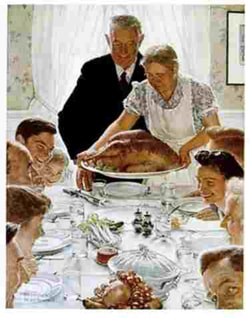
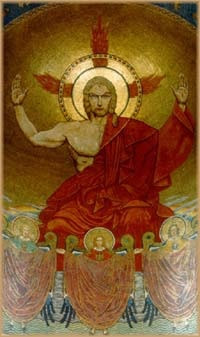
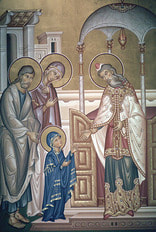
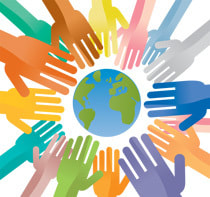
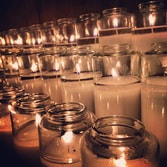
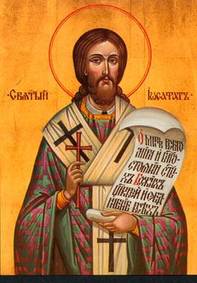
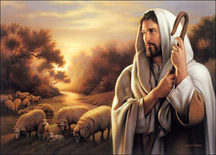
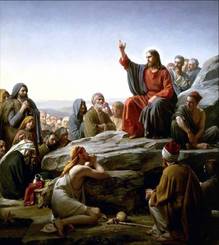
 RSS Feed
RSS Feed